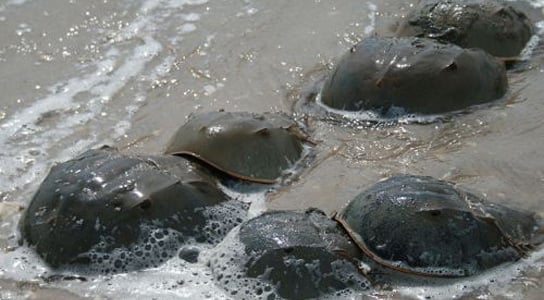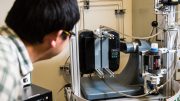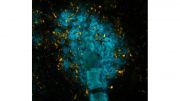
Horseshoe crabs mating.
Paleontologists have discovered that horseshoe crabs haven’t had an entirely static evolutionary history. A new fossil has helped elucidate the mystery of the horseshoe crabs, which have been around for about 510 million years.
The researchers published their findings in the journal Proceedings of the National Academy of Sciences. The fossil recorded a critical transformation in its evolutionary history. The 425-million-year-old fossil was discovered at a well-preserved site in Herefordshire, England. This new genus is called Dibasterium durgae.
Archaic arthropods originated during the Cambrian Explosion and had double-branched limbs, which were multi-functional. One branch was used for feeding and walking, while the other was used for breathing. In time, some arthropod lineages developed unbranched limbs that became dedicated to specific uses.
D. durgae is a midpoint between the modern horseshoe crab and their Cambrian forebears. It had four double-branched appendages, but each branch derived from a separate origin of the body. This could provide a clue to what happened to the now-missing branch among modern horseshoe crabs.
Previously it was thought that they lost one of their limb branches when the back legs transformed into book gills, but D. durgae indicates that 425 million years ago the two leg branches had begun to separate. After the divide between the leg branches was drawn, the now-missing half started to winnow away.
Reference: “Silurian horseshoe crab illuminates the evolution of arthropod limbs” by Derek E. G. Briggs, Derek J. Siveter, David J. Siveter, Mark D. Sutton, Russell J. Garwood and David Legg, 11 September 2012, Proceedings of the National Academy of Sciences.
DOI: 10.1073/pnas.1205875109









Be the first to comment on "Silurian Fossil of Dibasterium Durgae Untangles Horseshoe Crab Past"